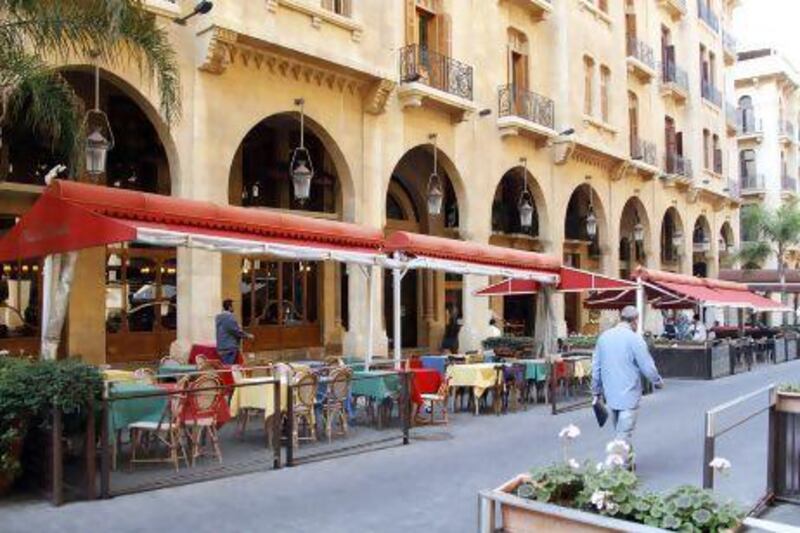It's back to Lebanon and the grinding mediocrity of a country with neither direction nor the guts to take a firm position on the escalating tragedy of the Syrian civil war. Economically, we are out for the count. One has only to walk around the streets of Beirut to realise that the only tangible economic activity is constant banging from the hundreds of building sites that dot every corner of the capital.
The housing market upon which these lofty (in every sense) projects were initiated has ground to a halt, while restaurants - Lebanon's other economic staple - are closing by the dozen. And yet there are investors still playing at the Lebanese gaming tables. Only last week, one Gulf developer confirmed to the local media that it plans to open a hotel to serve yet another new mall. "If Lebanon is risky today, that's fine," a spokesman told the Beirut Daily Star. "We take the long-term view."
But talking of long-term views, such calculations are positively Swiss in their conservatism compared to the latest stunt by Gebran Bassil. The caretaker energy minister - Lebanon once again finds itself without a government - has produced A Nation's Dream, an illustrated booklet that explains how we will spend the vast riches that our natural oil and gas reserves will apparently spew into the nation's coffers.
It portrays the baby-faced minister as a father taking his son on a whistlestop tour across a new, more affluent, happier and greener Lebanon. It is a landscape few Lebanese will recognise, dotted as it is with modern public transport, water taxis, hydro-electric dams, solar power and children playing in carcinogen-free air while deals are brokered with kindly businessmen.
In short, Mr Bassil would have us believe he is laying down a master plan for Lebanon's very own green and pleasant land. The only problem is that it is a load of rubbish and a monstrous insult to those free-thinking Lebanese who understand that Lebanon's political and social DNA will ensure that, should we ever strike the jackpot, such a dream can never be realised without some major restructuring of Lebanon's genetic make-up.
And another thing: despite the positive surveys and interest from a slew of international drilling companies, there are no guarantees any oil or gas will be found. And if it is, and if the estimated 1.9 billion barrels of oil and 122 trillion cubic feet of natural gas are pumped to the surface - latest due date is 2017 - the chances of the billions of dollars in revenue being used to create a Norway in the Levant are minimal given the permanent layer of filth and corruption that coats Lebanese politics.
This sleight of hand - the book's implicit optimism and the idea of our leaders working for the national good is nothing short of grotesque - is the latest chunk of wool that Mr Bassil and his comrades in the Free Patriotic Movement (FPM) have pulled over the eyes of their well-meaning but naive support base.
But it gets worse - and this is the bit that makes the whole A Nation's Dream project seem so utterly bonkers - because the FPM is allied to Hizbollah, a party with a core Islamic ideology whose sole objective is predicated on conflict and martyrdom. It is a party that does not give a hoot about accountability, transparency and the long-term economic health of Lebanon.
Indeed only last week, the party's secretary general announced to his followers that Hezbollah had acquired new and sophisticated "game changing" weapons which, should the occasion arise (an occasion that is historically of their choosing), would be used to have another crack at the Israeli foe.
Quite how Mr Bassil can talk about a land of happiness, wealth and health when his political partners would happily take the country into a regional conflict with potentially apocalyptic consequences is laughable.
In Lebanon, the nation's dream is usually the stuff of nightmares.
Michael Karam is a Beirut-based freelance writer
All over Lebanon, the restaurants' lights are going out
Lebanon's energy minister has produced an illustrated booklet that explains how we will spend the vast riches that our natural oil and gas reserves will apparently spew into the nation's coffers.

Editor's picks
More from the national




